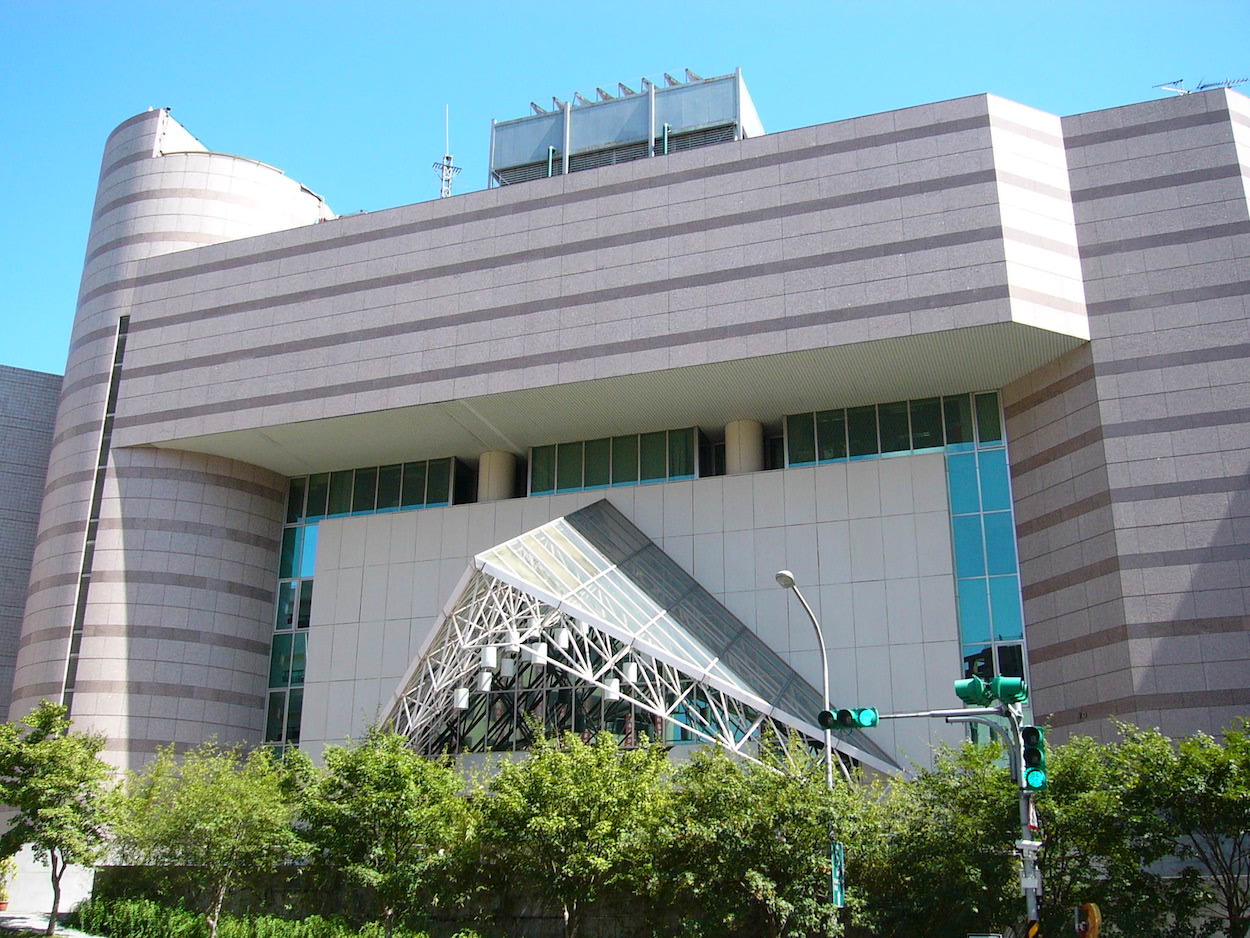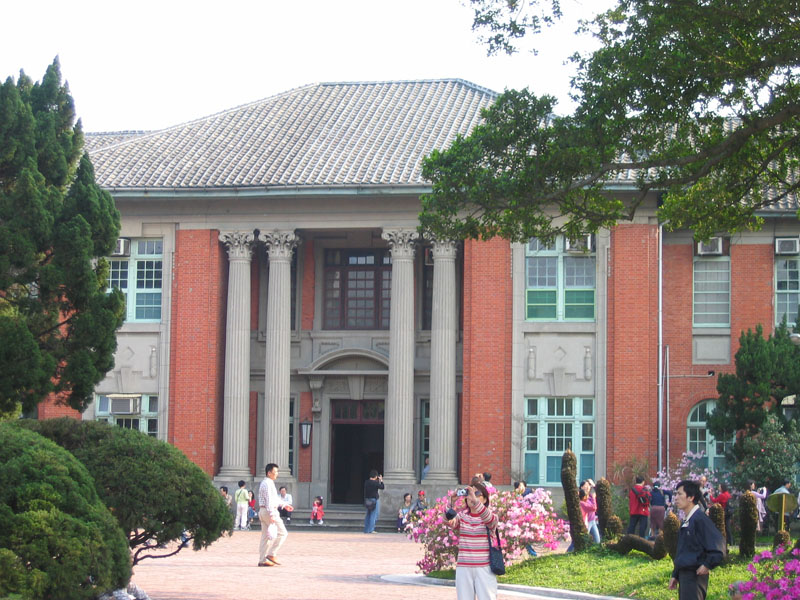by Brian Hioe
語言:
English
Photo Credit: 竹筍弟弟/WikiCommons/CC
CONTROVERSY BROKE out earlier this month regarding public broadcaster Public Television Service (PTS) and plans for PTS to launch an international English-language media platform. Plans for the platform were abruptly canceled after resistance from PTS board members, leading to the resignation of three out of fifteen board members. Among those that resigned included PTS’ president, vice president, and the manager of its news department.
The resignations took place after claims that the Tsai administration was seeking to interfere with PTS’ autonomy as a public broadcaster, claims that have been embraced and amplified by deep Green media critical of Tsai and pan-Blue media.
 The PTS building. Photo credit: Solomon203/WikiCommons/CC
The PTS building. Photo credit: Solomon203/WikiCommons/CC
Part of what remains unclear is under what circumstances plans to create an English-language international media platform became linked to PTS. PTS’s board previously voted to create an international English-language platform by an eleven to four vote, with a funding request of 45 million NTD sent to the Ministry of Culture despite rumors that PTS’ board had not fully approved of the project. Minister of Culture Lee Yung-te also emphasized earlier this month that PTS was planning the project.
However, part of what became an issue seems to be the view within the PTS that it was being effectively ordered to create an international media platform by the DPP. This was something that was seen as violating PTS’ independence and autonomy as a public broadcaster answerable to the public, rather than the state. As PTS decisions are, in theory, supposed to be bipartisan and answerable to both the DPP and KMT, part of what could also be at stake is contention between the pan-Blue and pan-Green camps within PTS.
PTS already offers some English-language and multilingual content. An international media platform, then, came to be perceived as something that would act as a DPP mouthpiece. Allegations swirl regarding budgeting between the Executive Yuan, Ministry of Culture, and PTS, with a lack of communication regarding the source of funding for what would be a large public expenditure.
Questions have also been raised regarding who will take up key positions in PTS following the resignations. For example, it has been speculated as to whether Antonio Chang (江春男), the founding editor-in-chief and publisher of the Taipei Times, is the Tsai administration’s preferred candidate to become the next president of PTS, though Chang may have expressed disinterest in taking up the post.
 The National Taiwan University campus. Photo credit: Kenttai/WikiCommons/CC
The National Taiwan University campus. Photo credit: Kenttai/WikiCommons/CC
Indeed, it is not impossible that the Tsai administration was hoping to create an English-language platform through PTS in order to respond to English-language disinformation efforts from Chinese state-run media such as the Global Times, China Daily, and People’s Daily. Efforts at international outreach using English or to promote the use of English as a means of internationalization have been a continual refrain of the Tsai administration, though not always successful. At the same time, calls to make English Taiwan’s second national language from the Tsai administration have also met resistance, because of the high expenditure and questions as to the feasibility of such an endeavor.
To this extent, questions regarding the autonomy of public institutions have flared up variously during the Tsai administration, as often linked to political contention between the pan-Blue and pan-Green camps.
For example, after reports emerged in 2018 that current National Taiwan University (NTU) president Kuan Chung-ming had taught in China, violating that he was forbidden from doing so under Taiwanese law as a former government minister, this led the Ministry of Education to try and remove Kuan. But this resulted in allegations that the Tsai administration was targeting a former political opponent and interfering in NTU’s university autonomy. Pan-Blue allies of Kuan leaped to his defense, accusing the Tsai administration of conducting a “Green Terror.”
Likewise, this is not the first controversy involving PTS board appointments either. During the Ma administration, Sylvia Feng was removed from her post as president of PTS because of targeting from the pan-Blue camp, who viewed Feng as taking PTS in a pan-Green direction under her presidency.
More generally, though a public institution in name, insofar as it is, in fact, deeply tied to the Taiwanese government, PTS has seen charges that workers there are effectively public servants that hold sinecure positions. Workers there are accused in the past of holding benefits similar to public servants, but with little interest contributing to the quality of the content. This is probably another contributing factor to the present controversy.
The Tsai administration has stated that it intends to go forward with launching an international media platform, even if this may not take place through PTS. Nevertheless, one expects that the controversy regarding PTS to be far from settled.
 Chinese Television Systems studio. Photo credit: Solomon203/WikiCommons/CC
Chinese Television Systems studio. Photo credit: Solomon203/WikiCommons/CC
Indeed, it is possible that the KMT will continue targeting public television networks with allegations that they are misusing funds. In the same timeframe, the KMT has criticized public broadcaster Chinese Television Systems as violating rules on funds from the Ministry of Culture. Likewise, the KMT may seek to frame continual efforts by the pan-Green camp to regulate Want Want Group-owned CtiTV—which devoted 70% of airtime to then-Kaohsiung mayor Han Kuo-yu of the KMT in May 2019 and was reported as taking money from the Chinese government by the Financial Times in July 2019—as also being attempts at political retribution against critics from the DPP.

